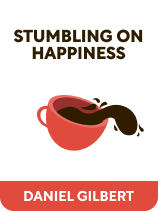

This article is an excerpt from the Shortform book guide to "Stumbling on Happiness" by Daniel Gilbert. Shortform has the world's best summaries and analyses of books you should be reading.
Like this article? Sign up for a free trial here .
When you think about your future, do you assume that you’ll want lots of variety in life? Does variety make you happier?
According to social psychologist Daniel Gilbert, variety is actually the opposite of what most people want. But many people fail to recognize that fact and end up forcing variety into their lives, ultimately making themselves unhappy.
Here’s why you need less variety in life than you think.
You Think You Crave Variety
You also make poor choices about the future because you mispredict the amount of variety in life you’ll want across long stretches of time in the future, writes Gilbert. You do this because, as with the first poor choice, you transpose your feelings about the present onto your vision of the future. You know that variety makes you happy in the short term, so you incorrectly think variety will make you happier over long periods of time.
Let’s break this down further: Most of us recognize that our enjoyment of something—playing ping-pong, for instance—decreases the more we do it. It therefore makes sense to vary what you do each day, by swapping ping-pong for tennis every other night, for example. You don’t enjoy tennis as much, but at least by regularly taking a break from ping-pong, your enjoyment of that sport remains high.
However, according to Gilbert, we mistakenly think we’ll also want variety across long stretches of time. In reality, when there are long gaps between occurrences—if you only play ping-pong once a week, for instance—your enjoyment of the activity remains high. But you mistakenly think it won’t, so you begrudgingly swap ping-pong for tennis every other week, even though you don’t really need to. This makes you less happy than sticking with ping-pong each week.
| Happiness by the Hour and by the Day Gilbert claims we make poor choices about the future because we incorrectly think high variety over a long stretch of time will make us happy. Researchers have drilled down even further into the connection between time, variety, and happiness. They’ve looked at happiness and variety in the specific time frames of days and hours to answer the question: What degree of variety makes you happiest over the span of an hour or a day? It turns out that over the course of a full day, variety helps sustain happiness because you feel excited by performing multiple tasks. However, over the shorter period of an hour, variety decreases happiness because your sense of productivity declines: You don’t feel you’ve accomplished much in the hour due to constantly flitting between tasks, and you waste additional time transitioning from one task to another. What’s more, the type of activity you’re performing doesn’t matter when it comes to variety decreasing happiness in short timeframes. You’ll have the same negative experience whether you’re introducing too much variety when working for an hour or when enjoying an hour’s free time. |

———End of Preview———
Like what you just read? Read the rest of the world's best book summary and analysis of Daniel Gilbert's "Stumbling on Happiness" at Shortform .
Here's what you'll find in our full Stumbling on Happiness summary :
- A look at how your brain fabricates your reality leading you to make bad decisions
- The six specific types of bad choices people make
- How to improve your decision-making in the future






